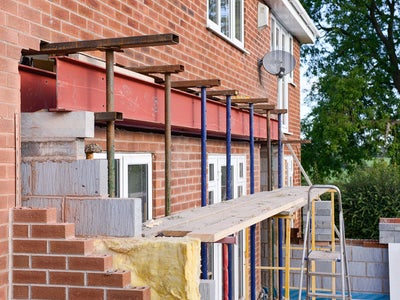Planning a home renovation
Renovating can boost your new home's value and lifestyle. Without planning, costs can spiral. Need direction? Our guide is here to help!
Define your vision
This sounds so obvious, but many homeowners go into a project without a clear idea of what they want to achieve. For example, do you need
- A modernised kitchen?
A refreshed bathroom?
An extension to add more living space, or more sleeping space?
Perhaps you’re desperate for extra storage
Would love more of an environment to improve your working from home set-up?
Perhaps you’ve an eye to the future, so that when the time comes to sell, your home appeals to a wider pool of buyers?
It's worth being clear about the why and not just the what. Then when you get down to budgeting, you can evaluate whether the outcome justifies the cost.
Budgeting and finance
Think about how you’ll decorate and furnish your new space. Will there be fees for architects, structural engineers, planning permissions?
Top tip: Set aside a contingency fund. A good rule is to anticipate overspending by around 10-15%.
Especially with older properties you never know what’s lurking behind walls or above ceilings.
When it comes to finance, its important to consider how you will pay for this. Credit card, savings, or will you take out a loan?
Top tip: A home improvement loan is worth comparing with a standard personal loan as it offers flexibility and is easy to apply for.
Engage with specialists
Consulting with specialists is always a good idea. They are able to assess feasibility, checking for issues like load-bearing walls and dampness.
Always verify planning permissions with your local council; they can increase property value even if work isn't completed.
Remember, permissions usually last three years. Communicate openly with your neighbours to pre-empt objections and ensure smooth renovations.
Project management
While DIY might work for small projects, managing schedules, trades, and regulations can be hefty. A solid plan ensures everything runs smoothly, covering everything from demolition to decorating. Consider hiring an architectural contractor. Yes, it's an extra 5-15% upfront, but think of the efficiency and peace of mind it brings!
Top tip: Spring and summer offer better chances of dry weather, however be mindful that tradespeople might be easier to book in autumn and winter.
Compare quotes
Finally, the last step is to get quotes and appoint your preferred tradespeople. Aim for three quotes for each job and make sure you get references from previous clients. You’re now ready to begin.
For more information on this topic, visit Move iQ.


